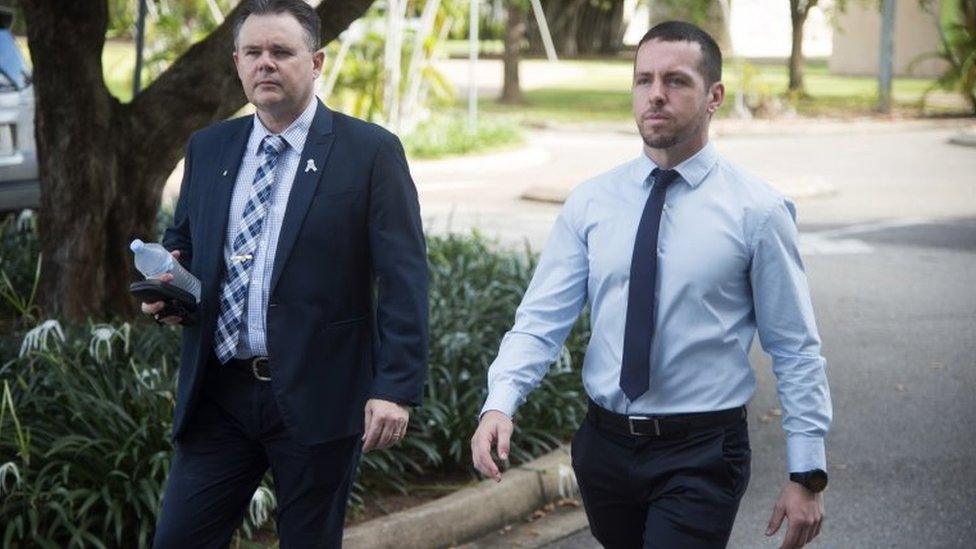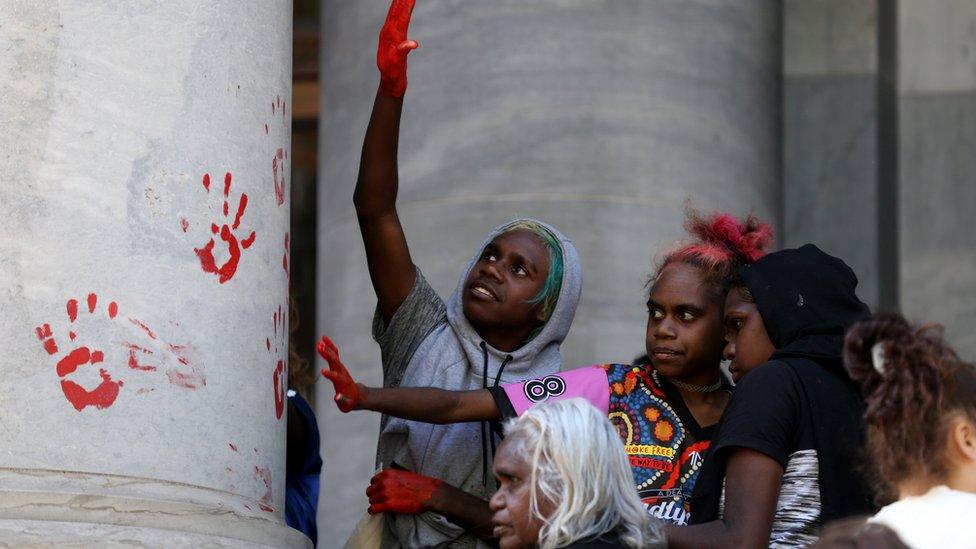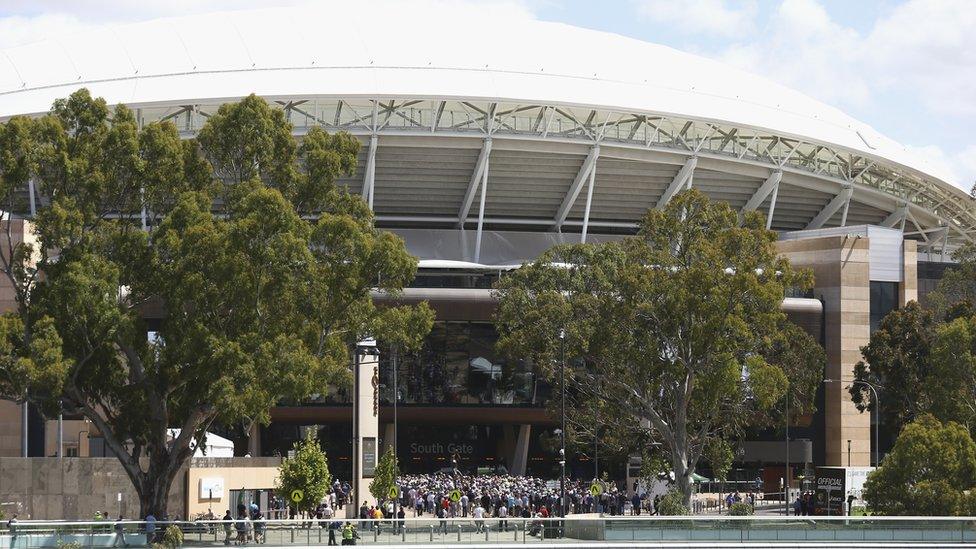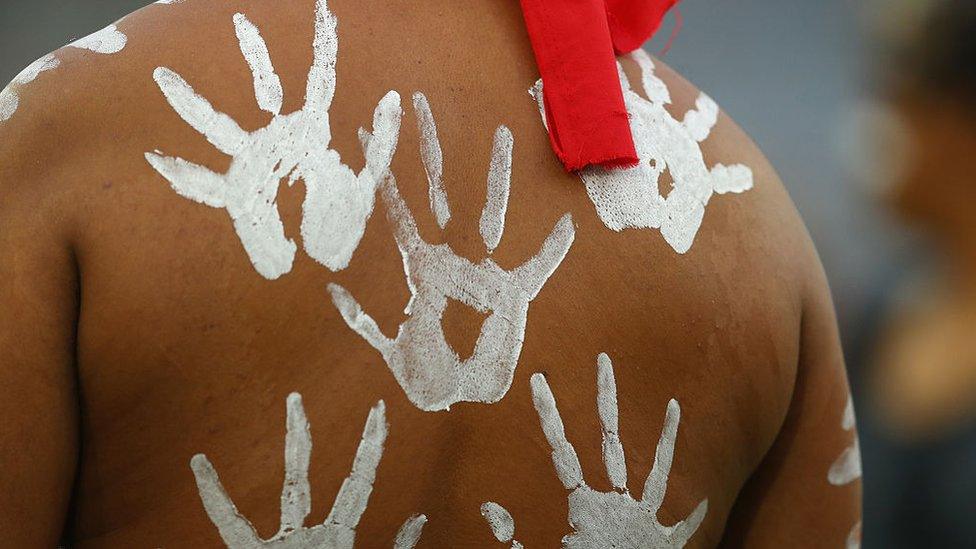Zachary Rolfe: Policeman acquitted of murdering Aboriginal teenager
- Published

Constable Zachary Rolfe (right), pictured with a union representative outside court
An Australian policeman has been found not guilty of murdering an Aboriginal teenager, after a case that sparked nationwide protests.
Constable Zachary Rolfe fatally shot 19-year-old Kumanjayi Walker while trying to arrest him in a remote Northern Territory (NT) town in 2019.
Constable Rolfe, now 30, argued he was acting to protect himself and a fellow officer at the time.
A jury took seven hours to acquit him of murder and two manslaughter charges.
After the verdict on Friday, Constable Rolfe said: "A lot of people are hurting today - Kumanjayi Walker's family and his community.
"I'm going to leave this space for them," he told reporters outside the Supreme Court of the Northern Territory.
Mr Walker died in Yuendumu, a majority Aboriginal community located 300km (190 miles) from Alice Springs. On Friday, a senior elder from his Warlpiri people called the verdict "not a very happy day".
"I'll just say, when are we going to get justice? When?" said Ned Jampijinpa Hargraves. "No guns - no guns in our own remote community. We don't want no guns. Enough is enough."
Since November 2019, Mr Walker's death has also become a national symbol for long-standing grievances by Aboriginal people towards police.
Case examined gunshots
The five-week trial heard that Constable Rolfe and Constable Adam Eberl had gone to arrest Mr Walker after he had breached a court order and later threatened officers with an axe.
But within a minute of entering a Yuendumu house, they became involved in a struggle with him.
After Mr Walker stabbed Constable Rolfe in the shoulder with scissors, the policeman fired his first shot. Mr Walker was upright and struggling with Constable Eberl at the time.
The court heard single shots were fired 2.6 and 3.1 seconds later as Constable Eberl tried to restrain the teenager on the ground.
Prosecutors agreed the initial shot was justified, but argued Mr Walker did not pose a threat when the others were fired. Lawyers for Constable Rolfe argued he had remained in fear for his colleague's life.

A protest outside a state parliament in South Australia in 2019
Mr Walker's death led to much anger, with crowds converging on the Yuendumu police station and authorities calling for calm.
At the time, NT Chief Minister Michael Gunner said he acknowledged the Yuendemu community - 85% of whom identify as Indigenous - was "hurting and grieving".
Officials classified Mr Walker's death as a "death in custody". In 1991, Australia conducted a royal commission - its highest form of inquiry - into Aboriginal deaths in custody.
But critics point out hundreds of Indigenous people have died in custody since then, arguing that recent reviews have been misleading and not enough is being done to address the issue.
Related topics
- Published30 March 2019

- Published12 February 2018
